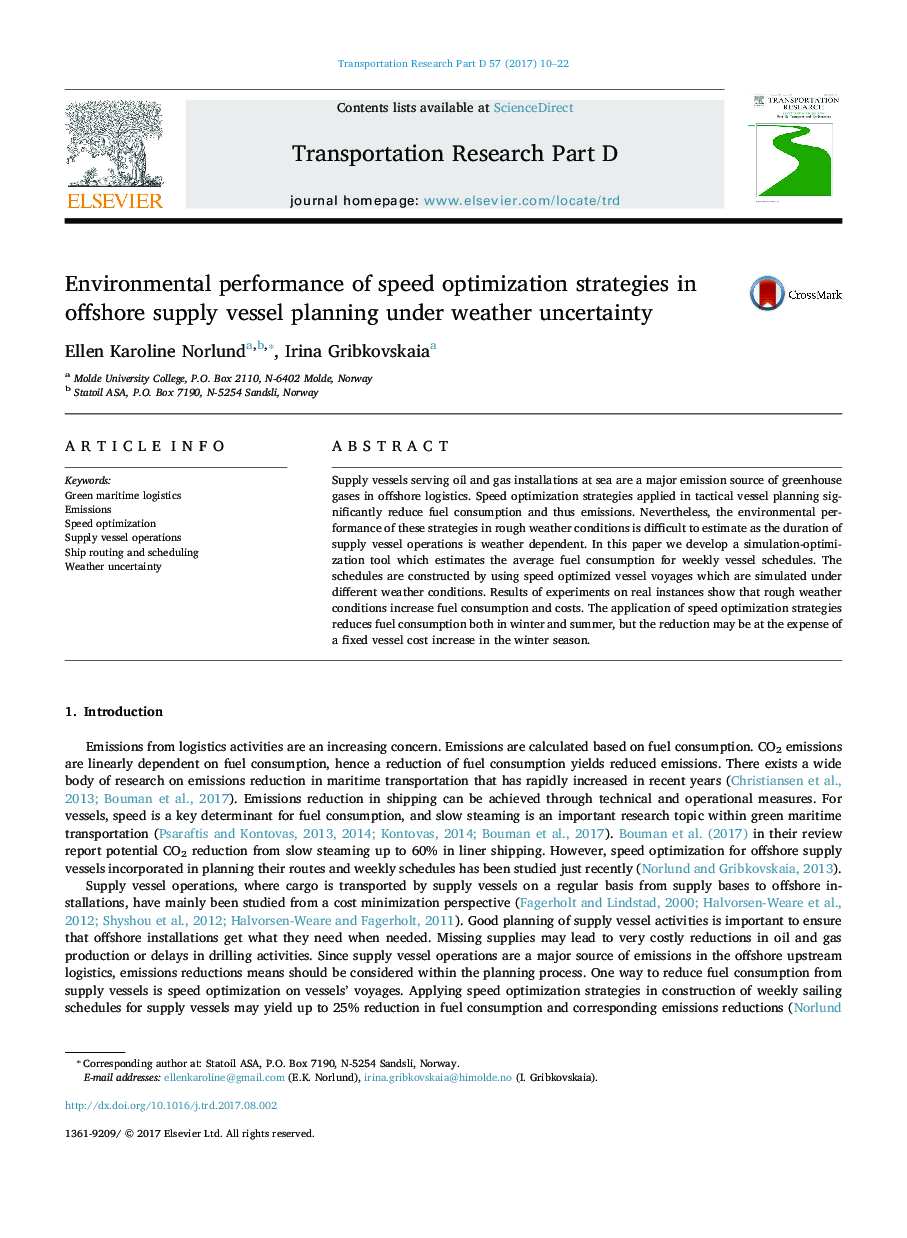| Article ID | Journal | Published Year | Pages | File Type |
|---|---|---|---|---|
| 5119297 | Transportation Research Part D: Transport and Environment | 2017 | 13 Pages |
â¢Study of speed optimization strategies performance under weather uncertainty.â¢Development of simulation-optimization tool for estimation of fuel consumption.â¢Speed optimization may reduce fuel consumption up to 19% in winter season.â¢In bad weather application of speed strategies may require extra vessels.
Supply vessels serving oil and gas installations at sea are a major emission source of greenhouse gases in offshore logistics. Speed optimization strategies applied in tactical vessel planning significantly reduce fuel consumption and thus emissions. Nevertheless, the environmental performance of these strategies in rough weather conditions is difficult to estimate as the duration of supply vessel operations is weather dependent. In this paper we develop a simulation-optimization tool which estimates the average fuel consumption for weekly vessel schedules. The schedules are constructed by using speed optimized vessel voyages which are simulated under different weather conditions. Results of experiments on real instances show that rough weather conditions increase fuel consumption and costs. The application of speed optimization strategies reduces fuel consumption both in winter and summer, but the reduction may be at the expense of a fixed vessel cost increase in the winter season.
